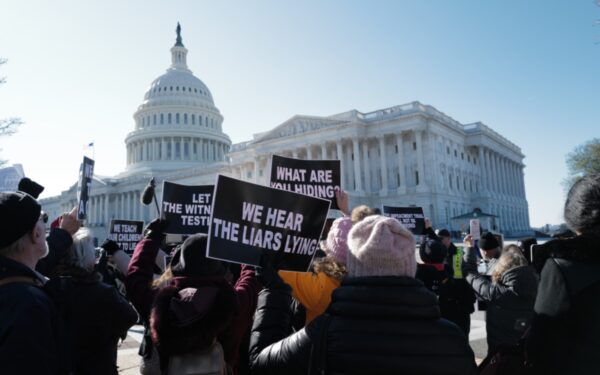The case against Julian Assange raises important questions. What limits are reasonably made to the right to freedom of expression? How much trust should the UK place in American promises of Assange’s treatment in the US prison system? What is the objectively right and just conclusion to his case?
All of these questions remain live. The 7th July decision of Mr Justice Swift to grant leave to appeal to the US means the case will continue, with an initial two-hour hearing scheduled for the second week of August to address aspects of the medical evidence. The judgment blocking Assange’s extradition in January this year of Westminster Magistrates’ Court will be revisited. The High Court will hear arguments from US lawyers that aspects of that decision were wrong.
The US case against Assange concerns the conflict between the freedom of expression and the protection of state security. In such cases, courts have traditionally deferred to the executive. Similarly, the District Court in Assange’s case held that the restrictions on expression were necessary in a democratic society. The test to successfully invoke the right to freedom of expression in extradition, that it would entail a flagrant denial, was not met.
The restrictions upon the freedom of expression, combined with the long arm of US law and that country’s objectively draconian sentencing policies have spurred vocal opposition to Assange’s extradition by representatives and supporters of the media. The National Union of Journalists called the District Court judgment in Assange’s favour a stunning victory for free speech. Its 2021 conference passed a motion stating that the Assange case constitutes a grave threat to a free press.
Concerns over the freedom of expression will not, it appears, be assuaged by the upcoming High Court appeal. Indeed, reconsideration of the District Court’s rejection of the argument is doubtful. The likelihood of the Supreme Court or the European Court of Human Rights hearing arguments on that point appears remote.
The crux of the upcoming appeal will instead centre upon the assurances given, or rather not given, by the US leading up to and, perhaps after, Assange’s hearing. Leave has been granted on whether the District Court was correct in discounting the effect of suicide prevention measures and whether it had given notice timeously to the US of its assurance-related concerns.
Assurances from a country requesting an accused through extradition are not uncommon. They can relate to medical treatment in the requesting country, pre-trial detention and conditions of possible imprisonment. Assurances played next to no role in the District Court judgment, being referred to just once.
With no specific promises to dissuade the judge otherwise she found there was a real risk that Assange, if convicted, would be held in the notorious prison ADX Florence in Colorado. She barred his extradition on the basis that he would be able to circumvent any suicide prevention measures put in place.
Following the District Court judgment the US gave several assurances. These provided that Assange would not be subjected to special administrative measures or detained in ADX Florence and that he would receive appropriate clinical and psychological treatment. A further assurance, that Assange would be able to serve any sentence imposed in his native Australia, was also made in line with standard practice.
However, Assange’s supporters say these assurances are worthless, not least because they could be overridden by the Director of the FBI or CIA on security grounds. Moreover, more than 80,000 prisoners a day are in solitary confinement outside of special administrative measures.
The High Court will consider the District Court judge’s application of the law and the nature and effect of the US assurances. Its focus will be relatively narrow. Questions of political bias, abuse of process and human rights will be excluded.
Nor will the question of what is the objectively right and just outcome in Assange’s case be addressed. Courts apply the law. In Assange’s case that is found in the Extradition Act 2003. It does not mandate that the High Court consider what is morally, ethically and practically just.
This is not to say justice cannot or will not play a role – courts retain a residual abuse of process jurisdiction in extradition, and politicians in both the UK and US could take a decision on that basis if they were so minded. Inaction by the Johnston and Biden governments will implicitly provide their view. The High Court will not be asked to consider abuse of process.
The years of Assange litigation and detention have so far provided more questions than answers. Let’s hope that the judgment of the High Court, most likely in the autumn, provides clear and unequivocal answers.
Dr Paul Arnell is a Reader in Law at Robert Gordon University, Aberdeen




